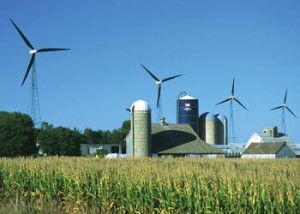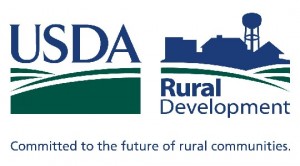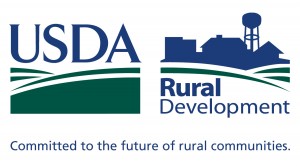Posts Tagged ‘USDA Rural Development’
Thursday, August 25th, 2011
“I have heard that there are grants available to business owners in NH. Is that true? What other economic incentives are available to a NH business owner?”
I get this question pretty frequently from businesses of all sizes and industries. What is that “NH Advantage” that we keep hearing about?
 NH Division of Economic Development Seacoast Business Services Specialist Christine Davis Unlike some other states, New Hampshire isn’t known to dangle hefty incentive packages to lure new business into the state. We don’t offer short term special deals to a prospective company from out of state that isn’t available to our current business owners. What NH does offer, the NH Advantage, includes such things as our lack of an income tax and sales tax. Also part of the Advantage is our high standard of living, quality of education, and geographic location. We also have government agencies such as ours, the Division of Economic Development, that are reachable and responsive.
Besides the above-mentioned incentives for locating your business in the Granite State, there are a number of other potential NH-based financial incentives. Large energy consumers may be eligible for a grant that covers the cost of an energy audit. Our division, www.nheconomy.com, offers free technical assistance, which could include an energy audit (valued at $10,000) to businesses that are spending $100,000 or more on their combined utilities. The business can take this audit and work with a number of financial institutions, including the NH Community Development Finance Authority (which also has some grant funds for energy audits) to assist them with a cost effective plan to implement these recommended efficiencies. These funds are limited so you will need to check first on availability.
The Business Finance Authority (BFA) offers the Business Energy Conservation Loan Fund: http://www.nhbfa.com/BFA_LoanPlans_BizEnergy.html which is financing assistance for energy efficiency improvements. The USDA Rural Development program, www.rurdev.usda.gov/vt, offers both grant and loan programs for a variety of projects and programs. You will need to visit their website to see if your business falls within the geographic and industry parameters for the projects they support. The NH Community Development Finance Authority, www.nhcdfa.org, also offers a tax credit program that provides, “New Hampshire businesses the unique opportunity to invest and target their tax dollars to community development projects throughout the state in exchange for a 75% State Tax Credit through the Tax Credit Program. This program enables businesses to invest cash, securities, or property to fund economic or community development projects in exchange for this 75% tax credit which can be applied against any or all three of the business profits, business enterprise, or insurance premium taxes. The donation also may be eligible for treatment as a state and federal charitable contribution.”
Businesses that are located within an Economic Revitalization Zone may qualify for a tax credit if they are making improvements to the facility and creating new jobs. You will first need to check with your town or our office, www.nheconomy.com, to see if you are located in an ER Zone. If so, you may be eligible to receive up to $40,000 in tax credits per year for up to 5 years to be used against your business profits tax and or your business enterprise tax. It is a complicated formula but our staff will help with the heavy lifting. This program also has limited credits available but that ceiling was not reached last year.
Non-profits are quite familiar with grants, as many of them need this support in order to function. Grants are almost always restricted to non-profit entities and when I hear someone tell me they received a call about grant opportunities for businesses (of course in exchange for a fee) I cringe. There is one grant in NH for businesses and it is the real deal. The NH Job Training Fund is a matching grant program available to both for-profit and non-profit entities. Companies can be awarded a cash match that ranges from $750 up to $100,000 for skills enhancement training. What does that include? Just about any training that increases the skill set of your employees including computer training, technical training, leadership and management skills training and lean manufacturing to name a few. Details on this fantastic program can be found at www.nhjobtrainingfund.org.
Through the University of NH the Green Launching Pad, www.greenlaunchingpad.org, “is a public and private sector initiative that enables local start-ups to bring green solutions to market. We discover New Hampshire’s best and brightest, and then support them with the financial resources, business infrastructure, and academic expertise to succeed.” Companies apply and compete to be selected as a GLP recipient. Winners not only receive some funding and technical assistance but they also get some great press which has a lot of value.
Also through UNH is the New Hampshire Innovation Research Center. Created by the Legislature in 1991, these grant funds are meant, “To increase collaboration, technology development and innovation between New Hampshire businesses and universities. New Hampshire businesses propose projects in collaboration with researchers, typically at Dartmouth Medical or the University of New Hampshire. Companies then match their project awards to fund the research which often leads to new production methods, new products and sometimes new companies.” You can visit their website, www.nhirc.unh.edu, to learn more about this program.
Each city, town or county may have its own incentive program for business development. You would want to reach out to your town manager, mayor or economic development director to see what is available. You never know until you ask.
Christine J. Davis works for the N.H. Division of Economic Development as a resource specialist serving businesses in Rockingham and Strafford counties. Her role is to provide the support needed for businesses so that they may remain viable and growing entities in the community. Ms. Davis lives in Exeter with her two daughters. When not performing her work or parenting duties she likes to spend time at the beach and discovering news places and activities in the community with her girls. She can be reached at Christine.davis@dred.state.nh.us.
Tags: Business Finance Authority, Christine Davis, Economic Revitalization Zone, Green Launching Pad, NH Community Development Finance Authority, NH Division of Economic Development, NH Job Training Fund, University of NH, USDA Rural Development
Posted in NH Business Matters | Comments Off on Ask CJ: Laying Out the NH Advantage
Monday, August 22nd, 2011
Agriculture Secretary Tom Vilsack has announced grants for more than 900 agricultural producers and rural small businesses across the country to implement renewable energy and energy efficiency measures in their operations. Secretary Vilsack made the announcement as part of President Obama’s rural economic bus tour in the Midwest where he highlighted efforts underway to reduce our country’s dependence on foreign oil, which will increase the economic competitiveness of rural America and promote job creation.
 U.S. Secretary of Agriculture Tom Vilsack “These investments enable our farmers, ranchers and rural small business owners to develop renewable energy systems and make energy efficiency improvements that will save them thousands of dollars in energy costs each year,” Vilsack said. “This funding is an important part of the Obama Administration’s plan to conserve natural resources, create jobs and lead our country on the path to becoming more energy independent.”
The grants are being provided through the Rural Energy for America Program (REAP), a 2008 Farm Bill initiative. REAP offers funds for farmers, ranchers and rural small businesses to purchase and install renewable energy systems and make energy-efficiency improvements. These federal funds leverage other funding sources for small businesses. In all, USDA announced more than $11.6 million in energy grants today.
According to Molly Lambert, USDA State Director for Rural Development, “The REAP program is helping many agricultural producers and rural small businesses reduce energy consumption.” For example, Larry Moore of Loudon, NH, was selected to receive an $5,862 grant to make energy-efficiency improvements to his maple sugaring operations, included in these improvements is the installation of an in series 2000 gph reverse osmosis system which is designed to increase energy efficiency by removing water from the sap prior to boiling.
Main Street Properties of Warner, LLC, located in Warner, NH will use an $18,625 grant to install an 11.25kw photovoltaic system that will generate solar electricity for their real estate management business. The pole mounted solar system will offset 65 percent of the annual energy consumption.
Scenic Nursery & Landscaping, Inc will use their $16,500 grant to install a 10kw photovoltaic solar system to replace electricity, The installation of the solar system is expected to generate 14,296 kHw of electricity.As a result, this project will significantly reduce the applicants reliance on fossil fuel based electricity and help to retain 8 jobs.
Funding of each award is contingent upon the recipient meeting the conditions of the grant agreement. Grants can finance up to 25 percent of a project’s cost, not to exceed $500,000 for renewables, $250,000 for efficiency. For a complete listing of Rural Energy for America Program grant recipients announced today, please click here.
USDA, through its Rural Development mission area, administers and manages housing, business and community infrastructure and facility programs through a national network of state and local offices. Rural Development has an existing portfolio of more than $155 billion in loans and loan guarantees. These programs are designed to improve the economic stability of rural communities, businesses, residents, farmers and ranchers and improve the quality of life in rural America.
Tags: Larry Moore, Main Street Properties, Molly Lambert, President Obama, REAP, Rural Energy for America Program, Scenic Nursery & Landscaping, Tom Vilsack, USDA Rural Development
Posted in NH Business Matters | Comments Off on NH Awarded $41,000 for Solar and Energy Efficiency Projects
Wednesday, May 18th, 2011
It’s 9 a.m. and the streets are flooded. Roads are not easily navigated by delivery trucks and businesses are forced to close their doors indefinitely. Unfortunately, this is a scene that has been repeated more than a few times in the Granite State recently with floods, ice storms and even tornados disrupting business activities.
 Bearing in mind that maintaining operations is key to long-term business survival, the New Hampshire Division of Economic Development and USDA Rural Development are working together to promote the importance of preparedness and communications even before a disaster strikes. The Division of Economic Development and the USDA will host “When Disaster Strikes! How Will Your Business Survive?,” a series of workshops in all ten New Hampshire counties to educate business owners and senior level managers on business continuity, social media efforts and media relations – all in an effort for these companies to be better prepared if a natural or manmade disaster were to effect their daily operations. The workshop series is just the first step in helping NH businesses. Concurrent plans also include developing three online web portals focused on supporting the public safety infrastructure. Bearing in mind that maintaining operations is key to long-term business survival, the New Hampshire Division of Economic Development and USDA Rural Development are working together to promote the importance of preparedness and communications even before a disaster strikes. The Division of Economic Development and the USDA will host “When Disaster Strikes! How Will Your Business Survive?,” a series of workshops in all ten New Hampshire counties to educate business owners and senior level managers on business continuity, social media efforts and media relations – all in an effort for these companies to be better prepared if a natural or manmade disaster were to effect their daily operations. The workshop series is just the first step in helping NH businesses. Concurrent plans also include developing three online web portals focused on supporting the public safety infrastructure.
“We believe education and preparation, especially in times of crisis, are essential to running any business,” said NH Division of Economic Development Interim Director Roy Duddy. “The workshops are designed to be a hands-on learning situation with best practices on business continuity, social media and media & public relations. Businesses who participate in the workshops will be engaged and given opportunities to learn how to be prepared before a crisis situation happens.”
On December 11, 2008 New Hampshire was hit with a devastating ice storm that left much of the state paralyzed. Entire sections of the state’s electric systems crashed, leaving more than 400,000 homes and businesses without power. Many roads were closed due to fallen trees and branches making efforts to restore power that much more difficult. President Bush issued an emergency declaration for New Hampshire. Hardest hit communities included: Belknap, Carroll, Merrimack, Rockingham, Coos, Grafton, Hillsborough and Merrimack. The workshop series and development of the web portals were made possible through a grant provided by the USDA and are designed to help small to medium sized businesses located in counties designated by the Presidential Disaster in the federal fiscal year 2008. With additional support from the Community Development Finance Authority (CDFA), funding was secured to include Cheshire and Sullivan Counties, the two counties that were not affected by the ice storm. Businesses in all ten NH counties will receive the opportunity to attend a seminar happening in the county in which their business is located.
Molly Lambert, State Director for USDA Rural Development stated that, “This is an extraordinary opportunity for USDA Rural Development to partner with federal, state and local leaders to create the platform and Internet based tools necessary for businesses to minimize economic loss and more efficiently recover from natural disasters. The ability of this program to assist business owners, their employees, and families to prepare for future disasters is critical to stable, healthy communities across the Granite State.”
“The Community Development Finance Authority wants to nurture an environment in which entrepreneurs have all the tools to succeed. Challenges to operating a business can range from economic to natural disaster. We are pleased to support this workshop series with the main goal of educating business owners on how they can be better prepared,” added CDFA Communications Director Kevin Flynn.
The workshop series will run once in each of NH’s 10 counties. The workshops will begin at 8:00 a.m. and end promptly at Noon.
The break-out sessions will focus on:
Business Continuity: How businesses, non-profits and the public sector can use business continuity planning to prepare and to respond to emergency situations. Presented by: Jeannette McDonald, Principal, Cogent Solutions LLC
Social Media: Web 2.0 Disaster Management: How to use social networks to plan for and respond to emergency situations. Presented by: Allen Voivod, Principal, Epiphanies Inc.
Public and Media Relations: Communicating in a time of crisis, getting to know your local media before disaster strikes. Presented by: Monica Bardier, Principal, PingPR and Scott Tranchemontagne, Principal, Montagne Communications.
———————————————————————————————————————-
Workshop Series Dates & Locations
June 2 Tech Village, Conway
June 7 Cheshire County, TBA
June 9 Pease Public Library, Plymouth
June 14 White Mountains Community College, Berlin
June 16 Division of Fire Standards Training and EMS Fire Academy, Concord
June 21 Hampton Police Department, Hampton
June 23 Gilford Public Library, Gilford
June 28 Claremont Savings Bank, Claremont
June 29 NH Institute of Politics at Saint Anselm College, Manchester
June 30 Strafford County, TBA
For more information on the workshop locations and to register visit: http://bit.ly/NHDisaster2011
Registration is required and space is limited.
In addition to the workshop series, three online tools are under development and are focused on the public safety infrastructure. Those three internal websites, which will operate as part of nheconomy.com, the State’s economic development web portal, include a business emergency preparedness site, a financing site and a manufacturing site. All will work to ensure that the New Hampshire business community is well positioned to be prepared when the next disaster or disruption in operations takes place.
Tags: Allen Voivod, Cogent Solutions LLC, Community Development Finance Authority, Conway Tech Village, Epiphanies Inc., Gilford Public Library, Hampton Police Department, Jeannette McDonald, Kevin Flynn, Molly Lambert, Monica Bardier, Montagne Communications, New Hampshire Division of Economic Development, NH Division of Fire Standards and EMS Fire Academy, NH Institute of Politics, Pease Public Library, PingPR, Roy Duddy, Scott Tranchemontagne, St. Anselm College, USDA Rural Development, White Mountains Community College
Posted in NH Business Matters | Comments Off on Free Workshop Series Developed to Help NH Businesses Survive Disaster
Wednesday, May 11th, 2011
Agriculture Secretary Tom Vilsack has invited agricultural producers and rural small businesses to apply for loans and grants to implement renewable energy systems and make energy efficiency improvements.
 In addition, the program also provides funding to complete feasibility studies for renewable energy generation systems and energy efficiency improvements. For information on how to apply for assistance, contact Steven Epstein in the Concord, New Hampshire office at 603-223-6041. The deadlines for submitting completed REAP applications are June 15 and June 30, depending on the type of project to be funded. In addition, the program also provides funding to complete feasibility studies for renewable energy generation systems and energy efficiency improvements. For information on how to apply for assistance, contact Steven Epstein in the Concord, New Hampshire office at 603-223-6041. The deadlines for submitting completed REAP applications are June 15 and June 30, depending on the type of project to be funded.
“Biomass, biofuels and other renewable energy sources present an enormous economic opportunity for rural America and the rest of the nation,” Vilsack said. “President Obama and I recognize that we need to win the future by implementing a long-term strategy to meet our country’s current and long-term energy needs. The funding I am announcing today will help make America’s farmers, ranchers and rural businesses more energy efficient.”
Since Rural Development’s renewable energy and energy efficiency programs were launched in 2003, they have played a key role in helping more than 6,000 businesses nationally create jobs and make energy efficiency improvements. Under REAP, local businesses receive assistance to deploy wind, solar and other forms of renewable energy as well as implement energy efficiency projects.
Locally, Wagner Forest Management of Lyme, New Hampshire took advantage of a REAP grant and loan guarantee combination to finance the installation of a solar electric generation system to offset 33% of their company’s office building electrical needs.
Tom Colgan, President of Wagner stated that, “I was very pleased to work with the USDA on our system financing needs. Now that the system is up and running we love it—particularly on the days when the sun is shining!” Christopher Bessette of Yankee Farm Credit in White River Junction provided the loan portion of the financing while USDA RD provided a grant and loan guarantee to Farm Credit.
USDA is providing funding for up to $61 million in guaranteed loans and $42 million in grants through the Rural Energy for America Program (REAP). Funds are available to help agricultural producers and rural small businesses develop renewable energy systems, make energy efficiency improvements and conduct studies to determine the feasibility of renewable energy systems.
USDA, through its Rural Development mission area, administers and manages housing, business and community infrastructure and facility programs through a national network of state and local offices. These programs are designed to improve the economic stability of rural communities, businesses, residents, farmers and ranchers and improve the quality of life in rural America. Rural Development has an existing portfolio of nearly $149 billion in loans and loan guarantees. Visit http://www.rurdev.usda.gov for additional information about the agency’s programs or to locate the USDA Rural Development office nearest you.
Tags: Christopher Bessette, President Obama, REAP, Steve Epstein, Tom Colgan, Tom Vilsack, USDA Rural Development, Wagner Forest Management, Yankee Farm Credit
Posted in NH Business Matters | Comments Off on Rural Energy for America Program Applications Invited
Monday, April 4th, 2011
USDA Rural Development, in conjunction with the Northeast Regional Center for Rural Development, has released details of “Stronger Economies Together” (SET), a new program that provides strategic planning and other technical assistance to bolster projects in multi-county areas in rural Vermont and New Hampshire. SET awardees will receive training and technical assistance tailored to their projects in order to achieve their community economic development goals. The intent of the program is to foster regional collaboration. Successful recipients will present projects that will have an impact on at least three counties. The goal is to assist groups or organizations that wish to capitalize on the strengths of their region and develop ways to enhance its quality of life.
 SET Eligibility Requirements: SET Eligibility Requirements:
• Applicants must submit project concepts that have a multi-county impact (three or more counties) in Vermont or New Hampshire (or in conjunction with counties in neighboring states).
• The average rural population must be 51% or more of the region’s total population based on Census data or other sufficient data or documentation; or 75% of their land area is located in rural areas of that region based on Census data or other sufficient data or documentation.
• Further details about eligibility are included at the end of the application form.
• Applications are available at Rural Development’s web site by emailing gary.beem@vt.usda.gov
• A complete application must be received electronically by May 13, 2011 (11:59 pm Eastern). Submit completed applications to: gary.beem@vt.usda.gov. You will receive an acknowledgment of receipt of your application within 36 hours.
• There is no application fee, but chosen applicants should be prepared to supply some minor logistical support.
The Stronger Economies Together program began one year ago in eight states and is now available in an additional 11states including Vermont and New Hampshire. Since it began, 22 regions have received technical assistance to accomplish their regional projects.
Tags: Northeast Regional Center for Rural Development, SET, Stronger Economies Together, USDA Rural Development
Posted in NH Business Matters | Comments Off on USDA and Northeast Center for Rural Development Announce Technical Assistance Program
Tuesday, June 8th, 2010
It was great to see that our friends over at Miles Smith Farm are amongst the recipients of a USDA grant for NH agricultural producers. For those of you who don’t remember, Miles Smith Farm was the setting for our “matador” video (http://www.youtube.com/watch?v=67wY7FiuiDE) that hailed the beginning of this very blog. Congrats to Carol and Bruce as well as to Poverty Lane Orchards and The Big Farm.
Agriculture Secretary Tom Vilsack announced that USDA has selected recipients in 45 states and Puerto Rico, including three New Hampshire agricultural producers, to receive business development assistance and pursue marketing opportunities for agricultural commodities. Funding is made available through USDA Rural Development assistance under the Value-Added Producer Grant (VAPG) program, which was authorized in the 2008 Farm Bill.
 “These grants provide the capital resources necessary for business growth and job creation in rural New Hampshire,” said Molly Lambert, USDA Rural Development State Director. “Through these investments USDA is strengthening the economic foundation of rural New Hampshire.” “These grants provide the capital resources necessary for business growth and job creation in rural New Hampshire,” said Molly Lambert, USDA Rural Development State Director. “Through these investments USDA is strengthening the economic foundation of rural New Hampshire.”
For example, Poverty Lane Orchards, in Lebanon, plans to use their $100,000 grant to expand their craft finished fermented cider into new markets. The cider is fermented from specialized apple varieties grown in the Northeast. Poverty Lane Orchards boasts a large planting of English, European, and New World cider apples, many of which are not edible fresh. Once fermented the cider apples provide a stunning cider blend.
“We are blown away to be selected as a grant recipient,” said Louise Spencer, one of the proprietors of Poverty Lane Orchards. “This grant will help us to identify market distribution areas throughout New Hampshire, Western Massachusetts, and parts of New York State where we can expand production and distribution and serve as a model for others in this industry.”
In Madison, The Big Farm, a 21 flock dairy sheep operation owned and operated by Paul Priestman, will use a $15,000 grant for working capital to hire additional labor to produce on-farm sheep’s milk cheese. Priestman, a Beginning Farmer, also plans to use this grant to market and sale in expanded areas, yielding a higher per pound value for their liquid milk to high quality finished cheese product.
Miles Smith Farm in Loudon, owned by Carol Soule and Bruce Dawson, is receiving a $64,950 grant for economic planning activities—conducting a feasibility study, establishing a business and marketing plan for developing precooked, frozen, packaged meatballs from boneless, underutilized cuts of high quality beef. This small family farm raises ‘free range’ Scottish Highland Cattle, which produce lean and tender beef without hormones or growth stimulants.
Tags: Bruce Dawson, Carol Soule, Louise Spencer, Miles Smith Farm, Molly Lambert, Poverty Lane Orchards, The Big Farm, Tom Vilsack, USDA Rural Development, VAPG
Posted in NH Business Matters | Comments Off on NH Agricultural Producers Selected for Business Development Assistance
Friday, October 16th, 2009
Thanks to Mike Firestone in Senator Shaheen’s office for passing on the information about new community facilities loans and grants available through USDA Rural Development. If anyone is interested in taking advantage, Mike would like to know, so that he and his staff could be helpful. Mike can be reached at: 202-224-6299 (office) or mike_firestone@shaheen.senate.gov.
APPLICATIONS ARE BEING ACCEPTED FOR USDA RURAL DEVELOPMENT COMMUNITY FACILITIES LOANS & GRANTS
Now is a great time to finance the capital project you have been planning! There is an unpreced ented amount of available funds. We may not see this amount of $$$ again for years! ented amount of available funds. We may not see this amount of $$$ again for years!
Apply now, don’t miss out!
- COMMUNITY FACILITIES GRANTS UPDATE
• To take advantage of unusual funding opportunities, we are not setting an application deadline for grants in 2010.
• We are encouraging all projects with defined budgets and matching funds to apply as soon as possible.
• Community Facilities Loans can be the match and we strongly encourage loan/grant combination applications.
• While the American Recovery and Reinvestment Act (ARRA) funds are still available, we anticipate they will be committed early in 2010. Apply soon! First come, first served.
• Maximum ARRA grant is $100,000; maximum regular program grant is $50,000.
- COMMUNITY FACILITIES LOANS UPDATE
• Loan funding is plentiful and we anticipate that it will remain so throughout the year.
• Interest rates remain low – 4.25% through December 31, 2009.
- AREA OFFICE CONTACTS
• Belknap, Sullivan, Cheshire, Hillsborough, Rockingham Strafford, Merrimack Counties:
Karen Demers at 603-223-6045 or Karen.Demers@nh.usda.gov
• Carroll, Coos, Grafton Counties: Anne Getchell at 603-447-3318 Ext. 5 or Anne.Getchell@nh.usda.gov
DETAILED PROGRAM INFORMATION http://www.rurdev.usda.gov/rhs/cf/cp.htm
Tags: Anne Getchell, ARRA, Karen Demers, Mike Firestone, Senator Jeanne Shaheen, USDA Rural Development
Posted in NH Business Matters | Comments Off on Breaking News: USDA Community Facilities Loans & Grants Available
Monday, October 12th, 2009
State energy efficiency efforts are the focus of the 5th Concord Green Drinks Gathering to take place on Tuesday, October 20th from 6:00 p.m. – 8:00 p.m. in the B-Lounge of The Barley House, 132 North Main Street, Concord, NH.
 New Hampshire Business Resource Center Regional Resource Specialist, James Robb, will be the keynote speaker discussing the State’s efforts to assist local companies to become more energy efficient. Included in Robb’s discussion will be an overview of the Ocean Bank Energy Efficiency Program, energy audits offered by the State, USDA Rural Development offerings and New Hampshire’s annual Greenerpalooza event. New Hampshire Business Resource Center Regional Resource Specialist, James Robb, will be the keynote speaker discussing the State’s efforts to assist local companies to become more energy efficient. Included in Robb’s discussion will be an overview of the Ocean Bank Energy Efficiency Program, energy audits offered by the State, USDA Rural Development offerings and New Hampshire’s annual Greenerpalooza event.
Due to the compelling nature of Robb’s presentation, it is encouraged that attendees arrive on time, as a large crowd is anticipated to attend this gathering.
The new Concord Green Drinks encourages the community to submit their input, suggestions, and recommendations for future gatherings. Concord Green Drinks are held the 3rd Tuesday of each month at The Barley House from 6:00 – 8:00 p.m. Each attendee is responsible for his/her bar tab.
If you are interested in sponsoring a meeting, have an idea for a topic, and want to be added to the mailing list, contact Barbara Morris at: barb.morris@zetlandhomes.com. Go to www.greendrinks.org to learn more about the international phenomenon and drill down to the Concord web page.
Tags: Barbara Morris, Concord Green Drinks, Greenerpalooza, James Robb, New Hampshire Business Resource Center, Ocean Bank, The Barley House, USDA Rural Development
Posted in NH Business Matters | Comments Off on Concord Green Drinks to Feature State Energy Efficiency Efforts
Wednesday, July 1st, 2009
Here’s another great grant opportunity from our good friends over at USDA Rural Development.
The Rural Community Development Initiative (RCDI) program provides technical assistance and training funds to qualified intermediary organizations (grant applicant) to develop the capacity of recipients they identify to undertake housing, community facilities, and community and economic development projects in rural areas. $6,256,000 in grant funds are available nationally in 2009 and applications have recently been invited. Applications must be received in the VT/NH State Office of USDA Rural Development by September 24, 2009 at 4PM.
 Key program points are: Key program points are:
1. The RCDI grant is made to an intermediary. The intermediary provides a program of technical assistance to recipients to build their capacity and ability to undertake projects related to housing, community facilities, or community and economic development in rural areas.
2. The intermediary can be a private or public organization that has been legally organized a minimum of 3 years and has experience working with the recipients eligible for this program.
3. The recipients can be nonprofit organizations or low-income (MHI at or below 80% of state or national MHI) rural communities. Recipients must be located in eligible rural areas (less than 50,000 population and not “urbanized”). Priority is given to applications which serve smaller communities.
4. Matching funds are required and must be in the form of cash or confirmed funding commitments and be at least equal to the grant amount. In-kind contributions cannot be used as matching funds.
5. For 2009 the maximum grant award is $300,000 and the minimum is $50,000.
6. Additional information, including application forms and a list of prior recipients, are available at http://www.rurdev.usda.gov/rhs/rcdi/index.htm
7. If you are interested in filing an application in VT or NH, we encourage you to contact Jon-Michael Muise [802-257-7878 x106 or jon.muise@vt.usda.gov] or Rhonda Shippee, Community Programs Director [802-828-6011 or rhonda.shippee@vt.usda.gov ] to discuss your proposal.
Tags: Jon-Michael Muise, Rhonda Shippee, USDA Rural Development
Posted in NH Business Matters | Comments Off on Mo’ Grant Opportunities From USDA Rural Development
|












 Bearing in mind that maintaining operations is key to long-term business survival, the New Hampshire Division of Economic Development and USDA Rural Development are working together to promote the importance of preparedness and communications even before a disaster strikes. The Division of Economic Development and the USDA will host “When Disaster Strikes! How Will Your Business Survive?,” a series of workshops in all ten New Hampshire counties to educate business owners and senior level managers on business continuity, social media efforts and media relations – all in an effort for these companies to be better prepared if a natural or manmade disaster were to effect their daily operations. The workshop series is just the first step in helping NH businesses. Concurrent plans also include developing three online web portals focused on supporting the public safety infrastructure.
Bearing in mind that maintaining operations is key to long-term business survival, the New Hampshire Division of Economic Development and USDA Rural Development are working together to promote the importance of preparedness and communications even before a disaster strikes. The Division of Economic Development and the USDA will host “When Disaster Strikes! How Will Your Business Survive?,” a series of workshops in all ten New Hampshire counties to educate business owners and senior level managers on business continuity, social media efforts and media relations – all in an effort for these companies to be better prepared if a natural or manmade disaster were to effect their daily operations. The workshop series is just the first step in helping NH businesses. Concurrent plans also include developing three online web portals focused on supporting the public safety infrastructure.  In addition, the program also provides funding to complete feasibility studies for renewable energy generation systems and energy efficiency improvements. For information on how to apply for assistance, contact Steven Epstein in the Concord, New Hampshire office at 603-223-6041. The deadlines for submitting completed REAP applications are June 15 and June 30, depending on the type of project to be funded.
In addition, the program also provides funding to complete feasibility studies for renewable energy generation systems and energy efficiency improvements. For information on how to apply for assistance, contact Steven Epstein in the Concord, New Hampshire office at 603-223-6041. The deadlines for submitting completed REAP applications are June 15 and June 30, depending on the type of project to be funded.  SET Eligibility Requirements:
SET Eligibility Requirements:  “These grants provide the capital resources necessary for business growth and job creation in rural New Hampshire,” said Molly Lambert, USDA Rural Development State Director. “Through these investments USDA is strengthening the economic foundation of rural New Hampshire.”
“These grants provide the capital resources necessary for business growth and job creation in rural New Hampshire,” said Molly Lambert, USDA Rural Development State Director. “Through these investments USDA is strengthening the economic foundation of rural New Hampshire.”  ented amount of available funds. We may not see this amount of $$$ again for years!
ented amount of available funds. We may not see this amount of $$$ again for years! New Hampshire Business Resource Center Regional Resource Specialist, James Robb, will be the keynote speaker discussing the State’s efforts to assist local companies to become more energy efficient. Included in Robb’s discussion will be an overview of the Ocean Bank Energy Efficiency Program, energy audits offered by the State, USDA Rural Development offerings and New Hampshire’s annual Greenerpalooza event.
New Hampshire Business Resource Center Regional Resource Specialist, James Robb, will be the keynote speaker discussing the State’s efforts to assist local companies to become more energy efficient. Included in Robb’s discussion will be an overview of the Ocean Bank Energy Efficiency Program, energy audits offered by the State, USDA Rural Development offerings and New Hampshire’s annual Greenerpalooza event. Key program points are:
Key program points are: